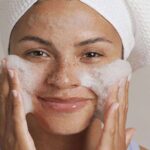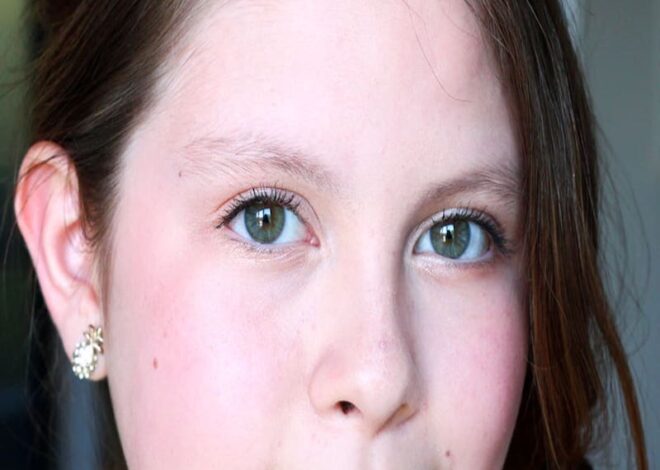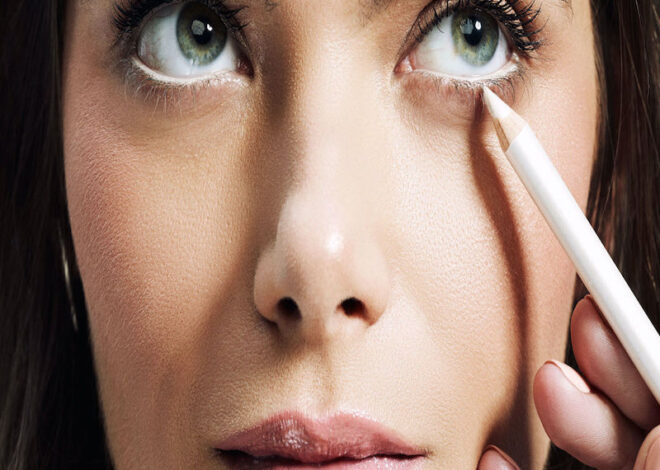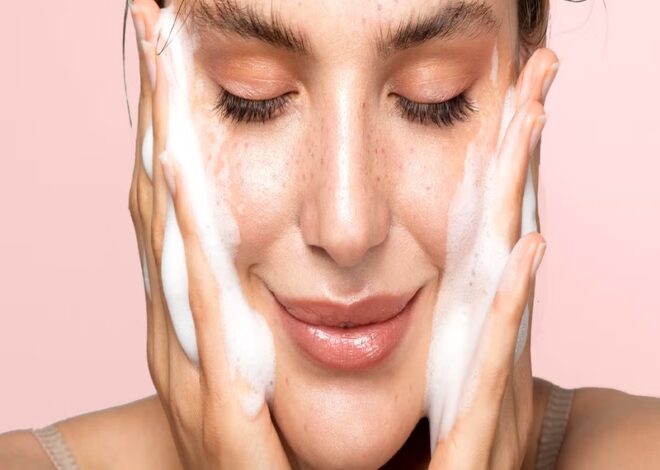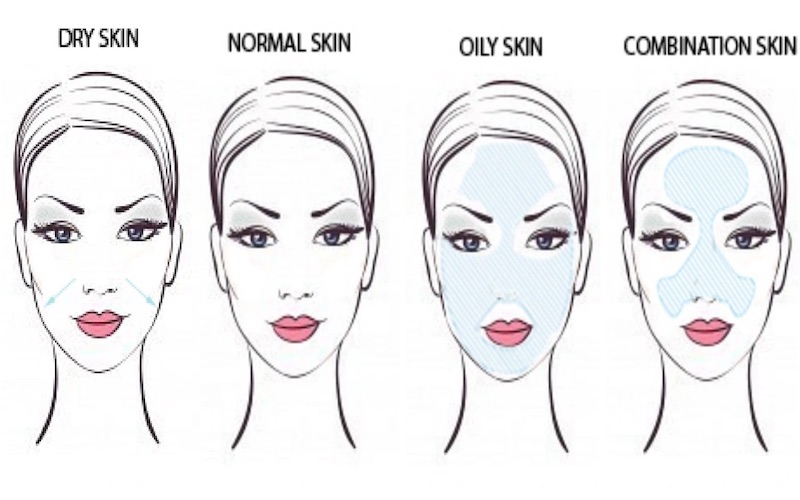
Which Skin Type Are You? Top 4 most popular skin types
Which skin type are you? The skin is an important organ of the body, playing the role of protecting us from harmful environmental factors. However, not everyone has the same skin type. Understanding your skin type is the first step to choosing the right skincare products to keep your skin healthy and radiant.
There are 5 main skin types: normal skin, dry skin, oily skin, combination skin, and sensitive skin. Each skin type has unique characteristics and care needs. Join Evaworlds to learn details about skin types below the article!
Which skin type are you? Oily Skin
Oily skin is a type of skin where the oil glands produce twice as much oil as normal. This results in skin that tends to be oily and can easily develop problems like acne and blackheads.
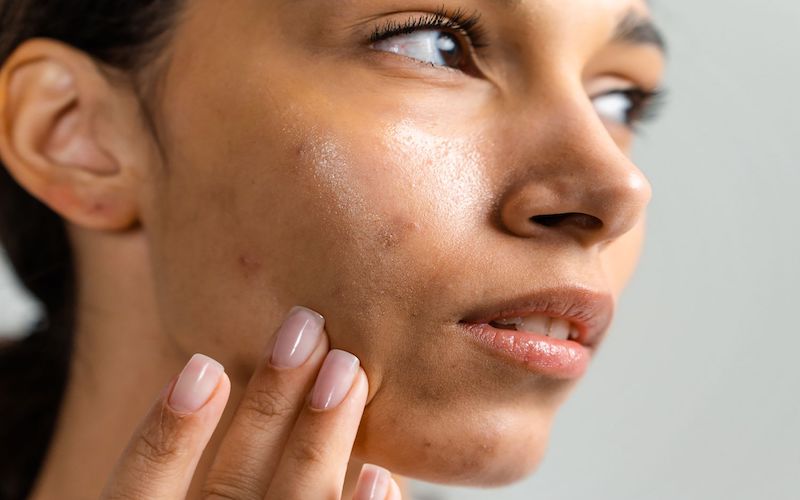
Some characteristics of oily skin that you need to know are:
- Oily skin: Skin often appears oily throughout the day. Especially in the “T” zone (forehead, nose, and chin).
- Acne and blackheads: Increased oil secretion can cause clogged pores, leading to the formation of acne and blackheads.
- Larger pores: Facial pores are often larger and may be more easily visible than on people with other skin types.
- Sometimes the skin can become acne-prone and prone to irritation: Oily skin is prone to irritation and acne. Especially when using inappropriate products or when exposed to polluted environments.
Which skin type are you? Dry Skin
Dry skin is skin that lacks natural oils and moisture, leading to skin becoming dry, tight, and rough. Some characteristics of dry skin include:
- Skin feels tight and uncomfortable: Dry skin often feels uncomfortable and tight, especially after washing your face or in dry weather conditions.
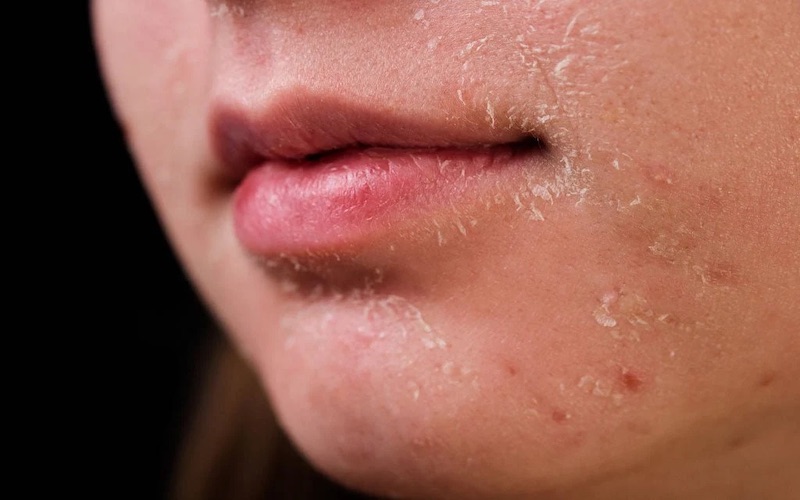
- Skin may peel: Dry skin tends to peel, especially on dry areas such as the face, arms, and legs.
- Wrinkles and fine lines: Dry skin may appear fine wrinkles and lines, especially in the eye and nose areas.
- Skin discomfort when exposed to harsh environments: Dry skin is often more susceptible to irritation and damage when exposed to harsh environments such as cold wind, seawater, or chemicals.
Which skin type are you? Combination Skin
Combination skin is a combination of two different skin types on the same skin area, usually the face area. Characteristics of combination skin include:
- The T-zone (forehead, nose, chin) can be oily: These areas often have more active oil glands. When you touch the skin, it will feel oily and prone to acne.
- Cheek and chin areas can be dry or normal: These areas often lack natural oils and moisture, which can cause the skin to become dry and tight.
- Large and possibly clogged pores: Combination skin may appear uneven, with large pores in the T-zone and smaller pores in the cheek and chin areas.
- Skin may have problems such as acne and dryness: This can make skin care difficult, as you need to balance treating acne with moisturizing dry skin.
Which skin type are you? Normal Skin
Normal skin is skin that rarely has problems and feels soft and smooth. Characteristics of normal skin include:
- No specific problems: Normal skin usually does not have major problems such as acne, dry skin, or oily skin.
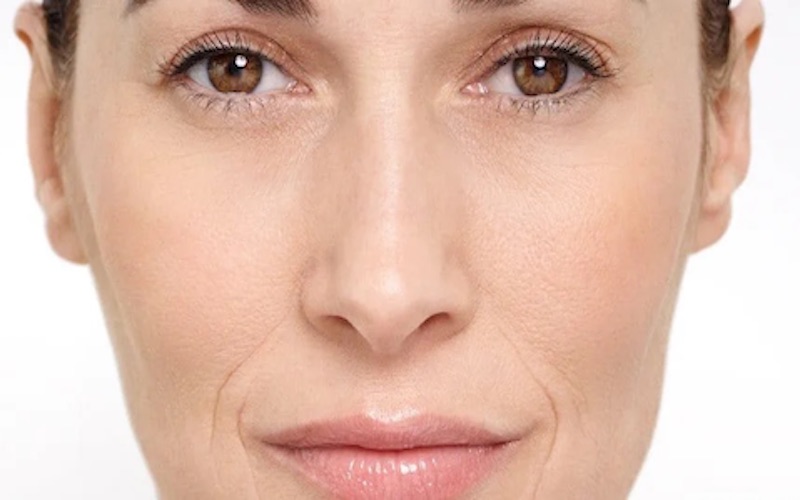
- Not too oily or too dry: Normal skin has a balanced level of natural oils, which does not cause problems with oiliness or dryness.
- Small and inconspicuous pores: Normal skin usually has small pores that do not make a big impression.
- Good natural moisture: Normal skin can retain moisture well, no need to use too many moisturizing products.
- Màu sắc đồng đều và không có kích ứng: Da bình thường thường có màu sắc tự nhiên đồng đều và ít bị kích ứng hoặc đỏ.
With normal skin, skincare usually only requires basic steps such as washing your face every day. You just need to use moisturizer and sunscreen to protect your skin from the effects of UV rays.
Sensitive skin
Sensitive skin is skin that is easily irritated or reacts strongly to external factors such as skin care products, chemicals, sunlight, or even the environment. Key characteristics of sensitive skin include:
- Irritation easily occurs: Sensitive skin often has strong irritation such as redness, itching, burning, or stinging sensations when exposed to irritants.
- Vulnerability: Sensitive skin may be susceptible to irritation or breakouts after exposure to skin care products or warning chemicals.
- Strong reactions to environmental changes: Changes in weather, climate, or pollution can cause strong reactions on sensitive skin.
- Discomfort and dryness: Sensitive skin often tends to be dry and uncomfortable, especially after exposure to irritants.
- Discomfort and dryness: Sensitive skin often tends to be dry and uncomfortable, especially after exposure to irritants.
Caring for sensitive skin requires gentleness and care, often requiring skin care products that do not contain fragrance or other irritating ingredients. At the same time, you need to avoid exposure to external factors that can irritate you. Performing a skin test before using a new product is also an important part of sensitive skin care.
Conclusion
So you know which skin type are you? No skin type is better than another. Each skin type has its own advantages and disadvantages. You must understand the characteristics of your skin type to have appropriate care to help your skin stay healthy and naturally beautiful. Remember, skin care is a long-term process, requiring you to be persistent and regularly change your care regimen to suit each stage of life.










